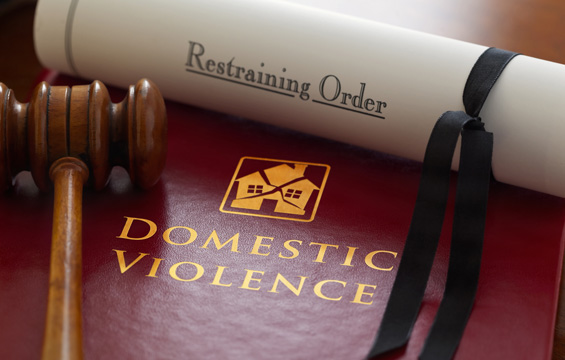Criminal Defense
Domestic Violence
THE FIRST THING TO KNOW ABOUT DOMESTIC VIOLENCE
HOW IS DOMESTIC VIOLENCE DEFINED?
In California, “Domestic Violence” can be a misdemeanor or a felony. A “domestic” relationship exists between: current and former spouses, domestic partners, fiancées, cohabitants, dating partners, and people who have a child in common. A misdemeanor “battery” exists when one person intentionally “…touches another person in a harmful or offensive manner…”; “…the slightest touching can be enough to commit battery if it is done in a rude or angry way…”; and “the touching does not have to cause pain or injury of any kind.” Self-defense is an affirmative defense to Domestic Violence.
If the touching causes “…a wound or other bodily injury, whether minor or serious…” the charges can be filed as a more serious misdemeanor charge, or as a felony. It is common for people to be arrested and booked on felony domestic violence, have bail set at the felony amount, and then ultimately be charged with only misdemeanor domestic violence, or sometimes have no charges filed at all. If charged with Domestic Violence Causing Injury, an additional partial defense is to argue that no injury occurred.
PENALTIES UPON CONVICTION

Conviction for misdemeanor Domestic Violence, without causing injury, is punished as follows: up to 1 year in jail, a work program, or on electronic monitoring; 3-5 years probation; up to $2,000 in fines; 52 Domestic Violence counseling classes; and the loss of gun ownership rights. Domestic Violence Causing Injury is punished with: up to 4 years in prison; 3-5 years probation; up to $6,000 in fines; 52 Domestic Violence counseling classes; and the loss of gun ownership rights.
VICTIM’S RIGHT NOT TO TESTIFY IN DOMESTIC VIOLENCE TRIAL
In California, police are uniquely authorized to make Domestic Violence arrests even without any complaining-reporting victim. Many “victims” of Domestic Violence ultimately wish for no prosecution to take place, and some “victims” never called the police to begin with. The prosecutor can file Domestic Violence charges without the consent and cooperation of the victim, but without other proof of Domestic Violence, the prosecutor cannot prove the case at trial without the testimony of the victim. Victims of Domestic Violence have an absolute right to choose not to testify in a Domestic Violence trial, without fear of being punished for such. (CCP 1219(b)). However, it is a crime to intimidate, threaten, blackmail, bribe, extort, or even use-guilt-to-discourage any victim from testifying.
